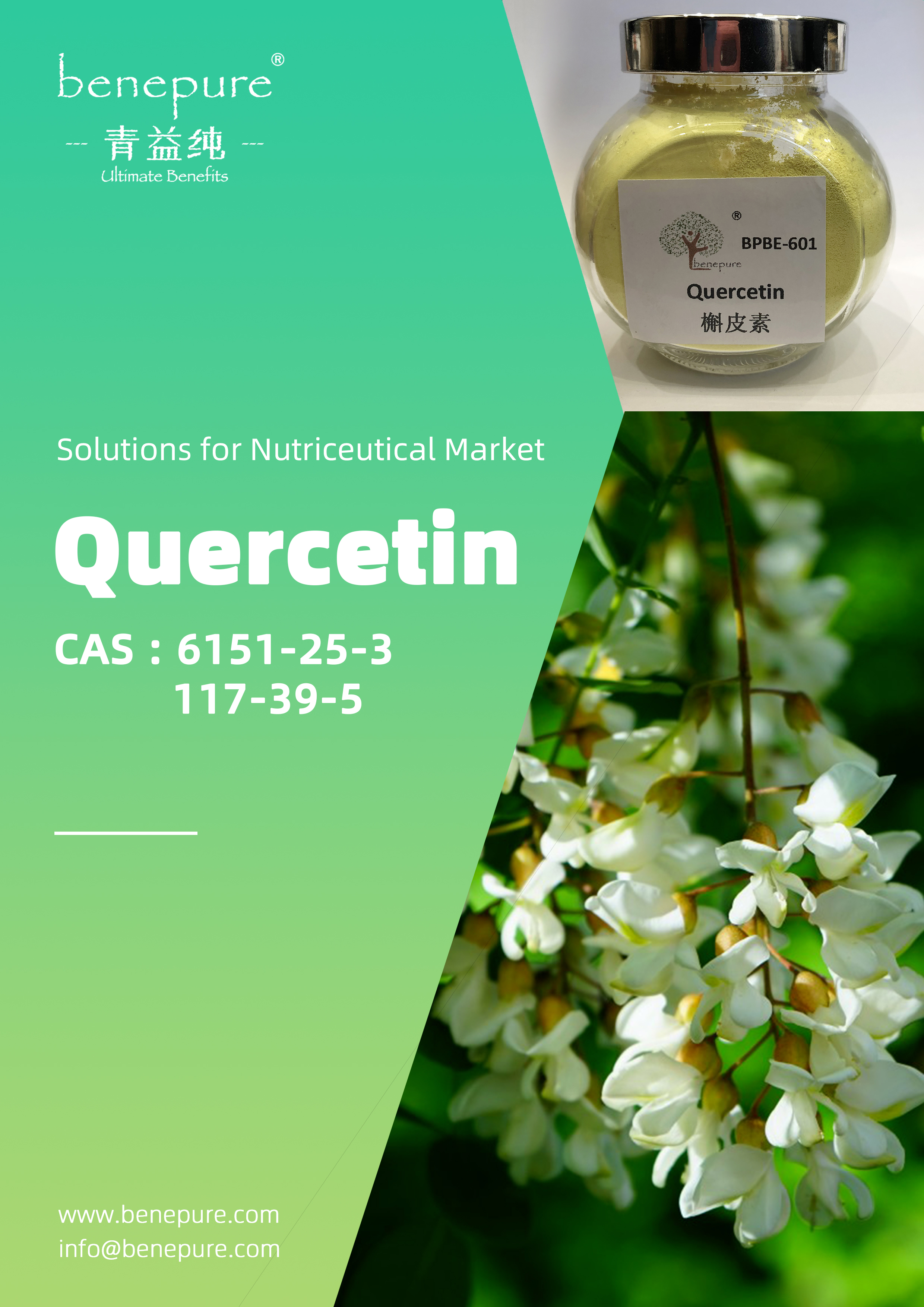Professional \ Focused \ Dedicated
Widely distributed in the plant kingdom, quercetin is found in abundance in a variety of foods, including rutaceous plants, capers, grapes, as well as many seeds, nuts, flowers and leaves.
Quercetin is supported by an extensive scientific literature that demonstrates its multiple biological activities: it has antioxidant, antiaging, antiaggregation and vasodilation properties.
As for the antioxidant effect, quercetin acts by directly inactivating free radicals, inhibiting lipid peroxidation (oxidants such as free radicals attack lipids contained in cellular membranes, lipoproteins, etc.) and blocking the oxidative stress cascade from the beginning; it also acts as an inhibitor of enzymes such as NO-synthase.
There is a lot of supporting evidence to promote the use of quercetin for respiratory health. Additionally, quercetin has shown in vitro activity against multiple viral targets and, very recently, was identified as a promising ingredient against COVID-19.

Benepure Pharmaceutical Co., Ltd.
 |
Address: 99# Jirui 3rd Road, High-Tech District, Chengdu, Sichuan , China |
 |
Mail: info@benepure.com |
 |
Tel: +86 28 8679 9990 +86 28 8679 8880 |
 |
Fax: +86 28 8679 9924 |

 |
|
 |
|
 |
Linkedln |
 |
Skype |
 |
TencentQQ |
 |
SinaWeibo |
 |